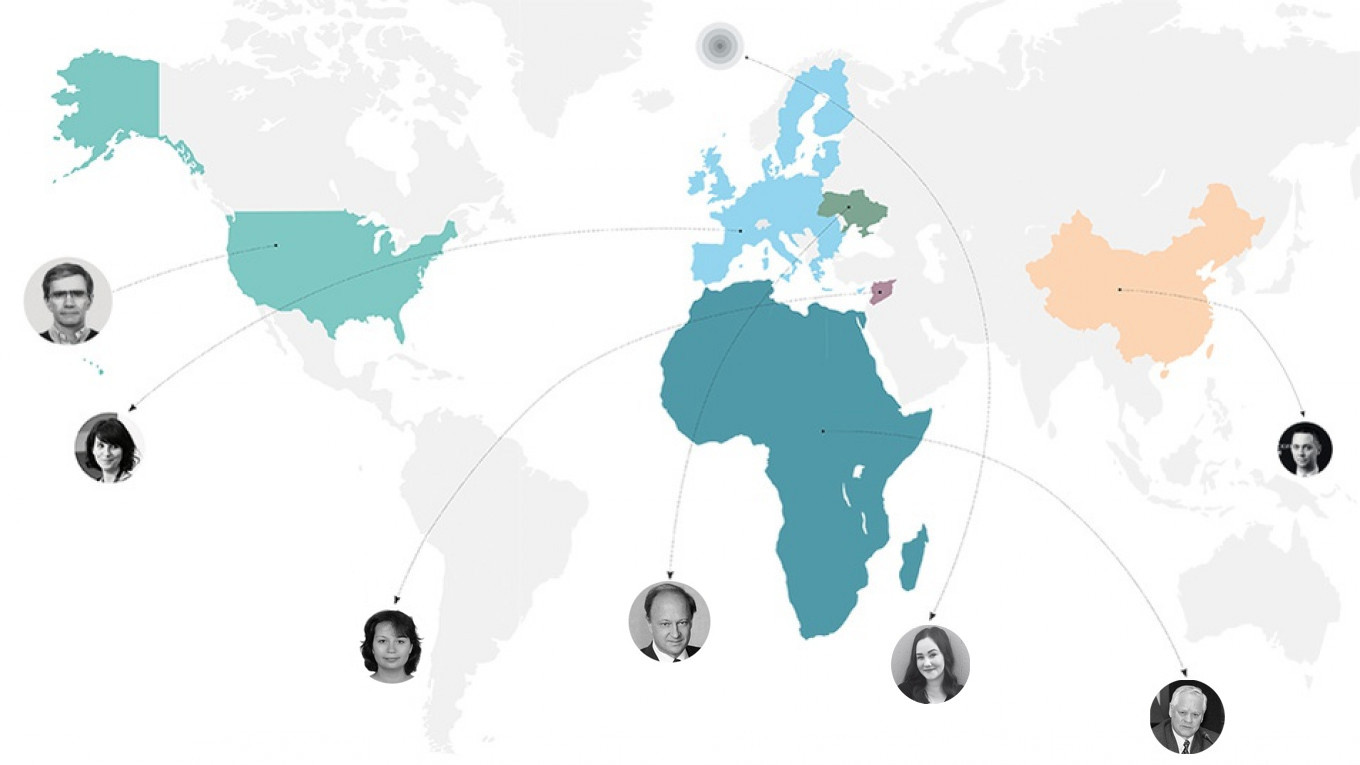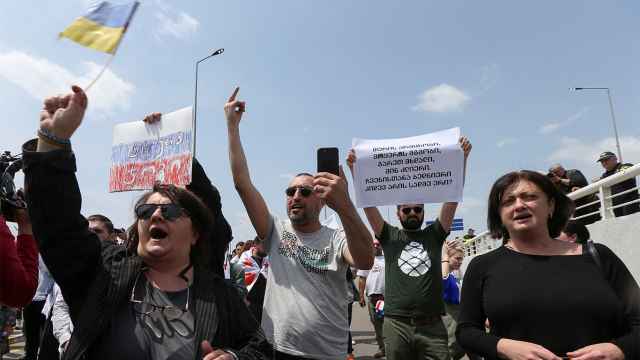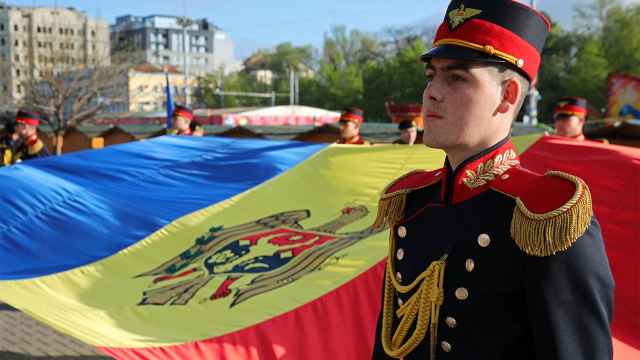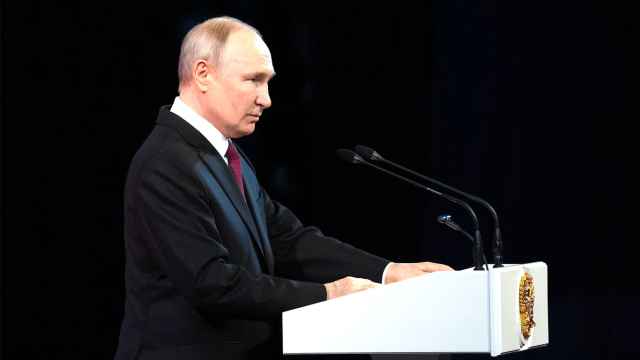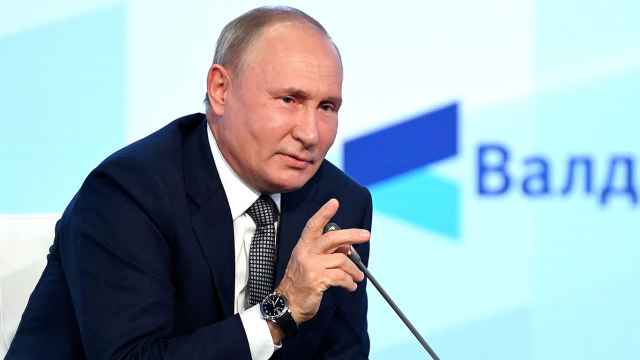2019 has been a busy year for Russia abroad. For one, the country has continued to cultivate its ties with new partners — including the 43 African leaders who attended the first Russia-Africa forum in Sochi in October — while sparring with major powers like the U.S. (ending a historic Cold War arms treaty).
While growing its influence in the Middle East, the country has also moved to extend its military reach to new frontiers, with the first nuclear bomber flights to South Africa and Venezuela, as well as political and military support for regimes ranging from Mozambique and the Central African Republic to the Libyan rebel military commander Khalifa Haftar.
Closer to home, the relationship with Ukraine has warmed up, as the two countries carried out a wide-scale prisoner exchange and agreed on a 5-year gas deal. Russia, however, has again been accused of destabilizing activities by the EU and other countries, while the future of its vital Nord Stream 2 gas pipeline to Germany remains unclear.
What does Russia hope to achieve in 2020? The Moscow Times asked six experts in Russian foreign policy to weigh in with their opinions.
Ramping up Russia-China trade in 2020
Alexander Gabuev, senior fellow and chair of the Russia in Asia-Pacific Program at the Carnegie Moscow Center
The year 2020 should have been the year when trade turnover between Moscow and Beijing surpassed the $200 billion mark — at least that’s what former Chinese leader Hu Jintao and then Russian President Dmitry Medvedev proclaimed in 2010. That ambitious target has now been pushed back to 2024. Nevertheless, in 2018 the volume of Sino-Russian trade had finally surpassed the $100 billion mark and working toward increasing that number will be a major goal for the Kremlin in 2020.
Despite the “phase one” U.S.-China trade deal agreed in December, Moscow hopes to increase its exports of hydrocarbons and food products to its giant neighbor. The Power of Siberia gas pipeline launched on Dec. 2, 2019 will start commercial operations next year. Although the pipeline will not reach its full capacity of 38 billion cubic meters (bcm) a year until 2025, next year Gazprom plans to pump at least 5 bcm of gas to China. Meanwhile, Russian oil companies are seeking to cement their dominance on the Chinese crude market and expand shipments, though the volume of trade in hydrocarbons will depend on global oil prices. Moscow is also trying to break through non-tariff barriers on the Chinese side in order to grow agricultural exports to China.
Russian imports may become another driver of trade. Despite anemic growth rates at home, the Kremlin is entering into deeper engagement with Chinese tech giants like Huawei, as Russia tries to decrease its dependence on Western technology and rely more on alternatives provided by China that are viewed as cheaper and less harmful to national security.
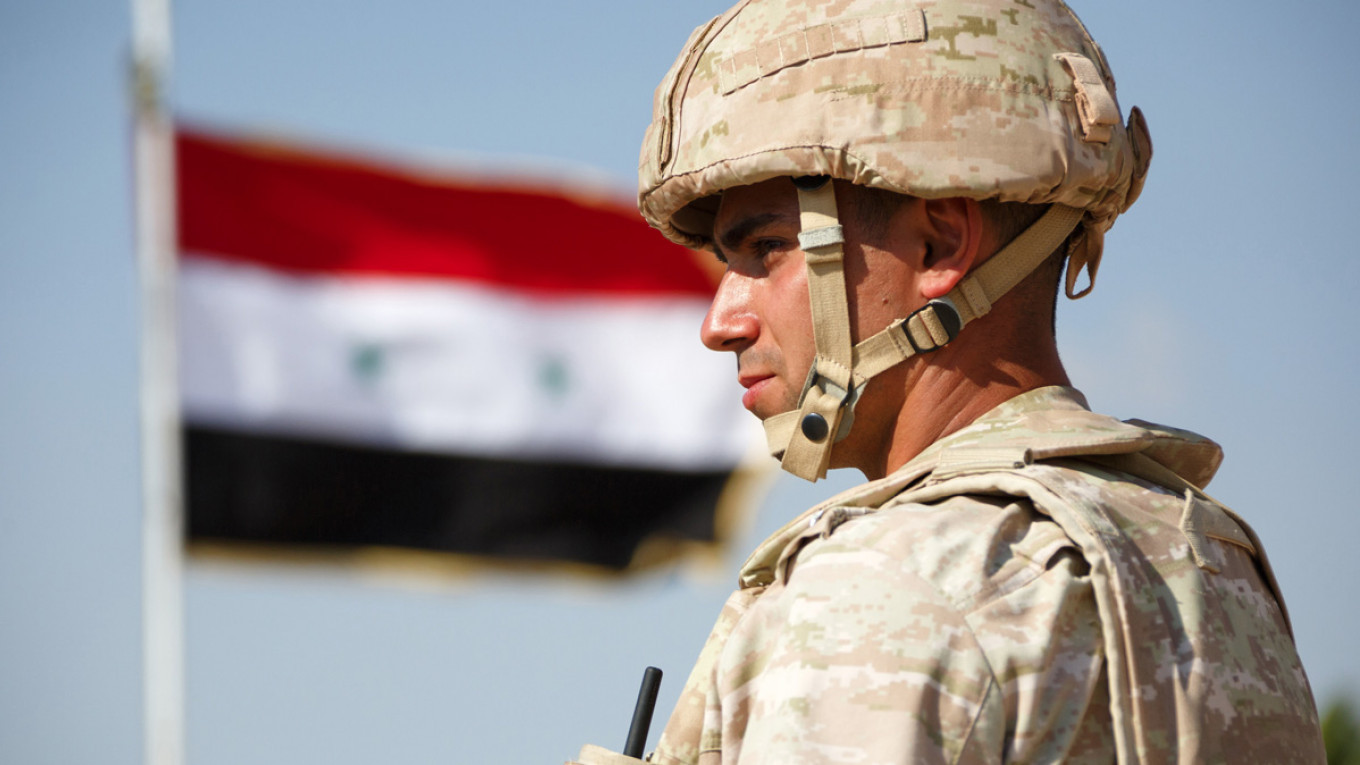
Russia needs to show it is a long-term partner in the Middle East
Marianna Belenkaya, Middle East correspondent for the Russian daily Kommersant
The main challenge for Russia in the Middle East in 2020 will be to prove that it has not constructed a house of cards in the region that could crumble at any moment. Russia has built almost its entire Middle Eastern policy on the Syria effect.
But Moscow understands that military presence in that country is not enough, especially given that the emphasis of events there is increasingly shifting towards diplomacy. However, Russia could easily become mired in the very disagreeable process of trying to reach a political settlement.
In 2019, Moscow tried to extend its experience in the Syrian settlement to other regional issues: it mediated for the Palestinians and updated the concept of security in the Persian Gulf based on dialogue between the Arabs and Iran. So far, however, this has not produced any results. Nonetheless, Moscow will try to come up with impressive diplomatic initiatives to reaffirm its image as an influential regional power.
To a certain extent, Moscow has become a hostage of the image it created for itself after the start of the military operation in Syria — namely, that of a strong player who knows how to negotiate with everyone, and who can apply pressure when it is unable to establish a dialogue.
Now the expectation is that Russia will intervene in almost every regional conflict, and particularly in Libya, with a repeat of its Syrian military scenario. Russia has apparently reconciled itself to this role, judging from the fact that Defense Ministry officials met with Libyan Field Marshall Khalifa Hafter.
As for attempts to accuse Moscow of meddling in Middle Eastern affairs, Russia’s policy differs little from the actions of other “great” powers. In fact, Moscow faces its own problem of not having a definite policy with regard to Private Military Countracts and various interest groups that often operate in the Middle East, Africa and other regions of the world in contradiction to the Russian official position.
The question remains as to whether Russia has a clear, long-term strategy in the Middle East.
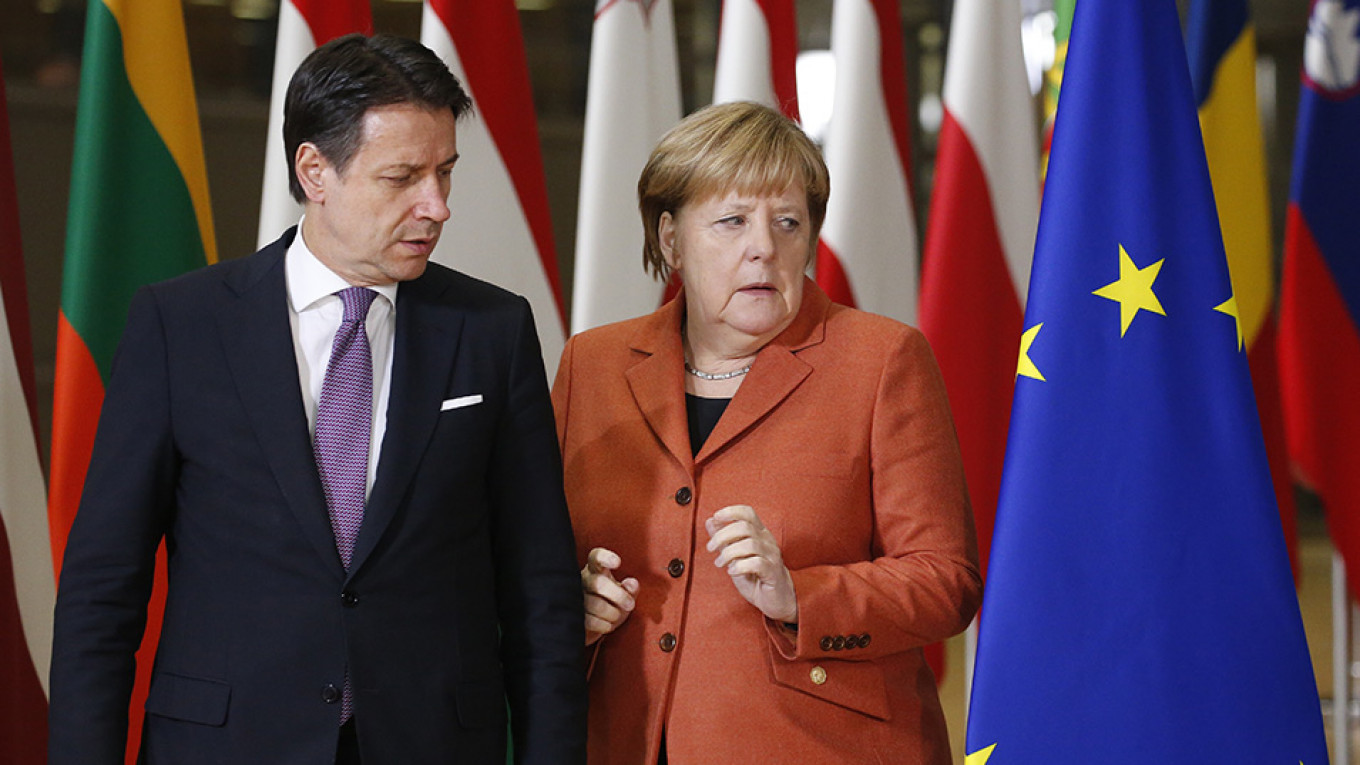
In Europe, pragmatism remains key
Elena Chernenko, special correspondent at Kommersant and member of the board of the Council on Foreign and Defense Policy
I don’t have the feeling that Russia has any special “goals” in mind when approaching its relations with the EU in 2020. The reality is that at the moment there aren’t any constructive relations between Russia and the EU as a union.
All the plans that started to develop between Moscow and Brussels before 2014 are still mostly on hold because of the events in and surrounding Ukraine.
For Russia, the EU remains an important partner because of the power of sanctions and the fact that it can make life harder for the Kremlin’s ambitious Nord Stream 2 project. But the Kremlin realizes that almost everything else can be dealt with on a bilateral level.
This year, the EU unfortunately did not make its voice heard during the collapse of the U.S.-Russia INF treaty. The existence of that treaty was in the vital interests of European countries. Now the EU can once again get stuck in the middle of arms rivalry between Moscow and Washington.
When it comes to bilateral relations with EU member states, Russia will continue its pragmatic approach: more trade, more investment, more tourism. Russia has already introduced e-visas for St. Petersburg.
The political agenda is more nuanced: Russia would prefer a less unified and rigid EU on Ukraine. At the same time, it hopes for the EU to take a united and sovereign stance against the U.S.
I don’t, however, expect any proactive steps from Moscow on these issues. Time seems to be playing into Russia's hands so the Kremlin will sit back and see what happens in 2020.
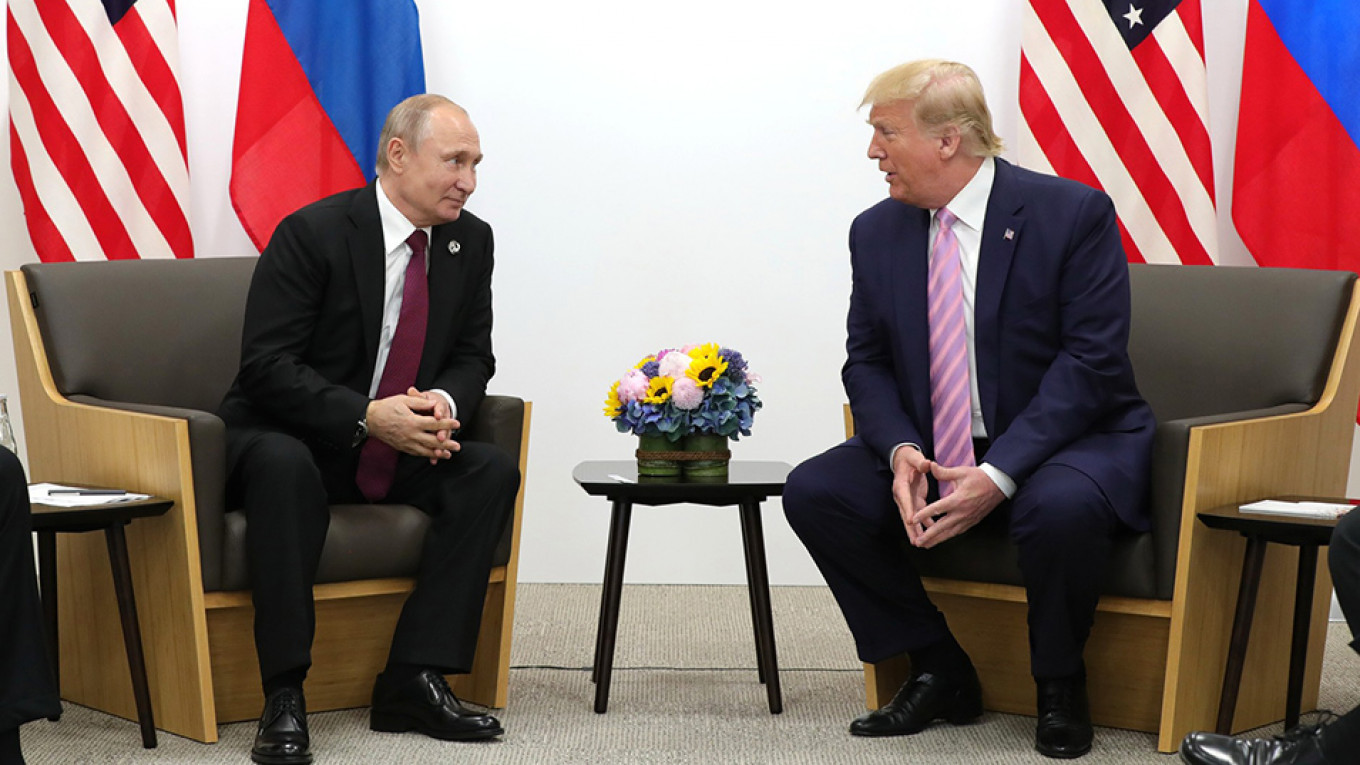
The Kremlin will be hoping for another 4 years of Trump
Vladimir Frolov, political columnist and foreign policy expert
There was a promising start to 2019 for both countries.
After phone calls between U.S. President Donald Trump and Russian President Vladimir Putin in late April and Secretary of State Pompeo’s visit to Sochi in early May for meetings with Putin, the two sides seemed to have resolved to focus on a range of overlapping interests. In the summer, Putin and Trump had a constructive meeting at the G20 summit in Osaka, Japan.
By early September, however, John Bolton had been fired as Trump’s national security advisor, U.S. Ambassador to Moscow John Huntsman and National Security Council (NSC) Senior Director for Russia Fiona Hill had resigned and a complaint from a whistleblower had triggered a congressional impeachment investigation focused on the U.S.-Ukraine relationship, eliminating any bandwidth in Washington for dealing with Moscow. The INF nuclear treaty also died somewhere along the way.
2020 may turn out to be much better, however. Barring unforeseen developments, Trump will be impeached in the House and acquitted in the Senate retaining realistic prospects for re-election in November 2020.
Before that, he will visit Moscow in May for the Victory Day celebrations, where Putin will be hosting President Xi Jinping of China and President Emmanuel Macron of France, who has recently allied himself with the Russian leader’s worldview.
In Moscow, Putin and Trump will have their first full summit, which will require deliverables.
With John Bolton and Tim Morrison gone from the NSC, the U.S. may agree to extend the New START Treaty for a few more years, as Russia proposed, giving Putin and Trump their “wins.” The presence of presidents Xi and Marcon in Moscow may help launch a multilateral discussion on the future of strategic stability. Some progress on the nuclear programs of Iran and North Korea is not out of the question. If Russia and Ukraine make significant strides in implementing the Minsk agreements under French facilitation, U.S. sanctions relief could even be on the agenda.
Beyond the Moscow summit, not much else in bilateral relations will be accomplished during U.S. election season.
The Kremlin will pursue an international agenda of restraint in order not to undermine Trump’s reelection. Nor will it launch any covert action to meddle in the U.S. presidential election. It doesn’t have to. Four more years of Trump in the White House is more than enough to accomplish Moscow’s goals of ending the U.S. global pre-eminence. Who could ask for more?
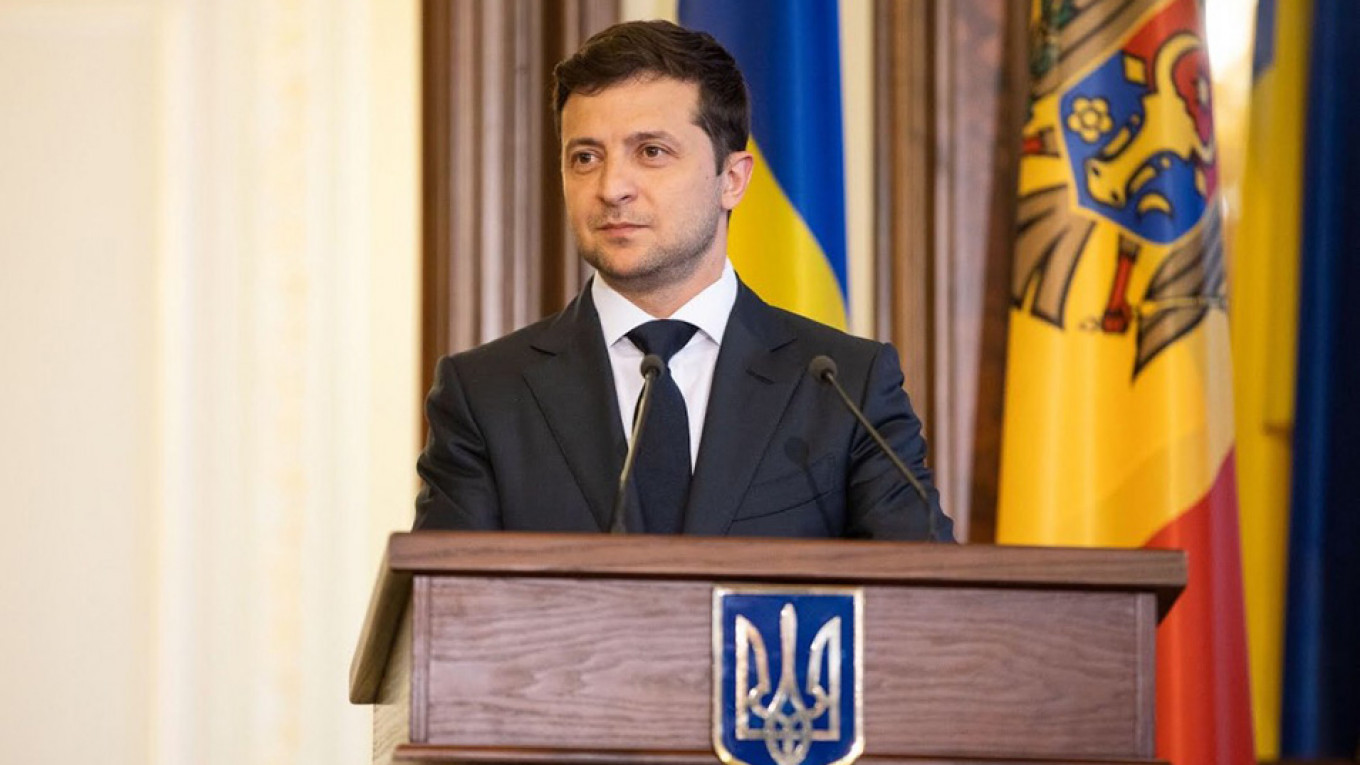
Russia will continue probing Ukraine's Zelenskiy in 2020
Andrei Kortunov, director-general of the Russian International Affairs Council.
It appears that there are two points of view among top Russian officials regarding likely developments in Ukraine over the coming year and what they will mean for Moscow.
The first says that Ukraine’s political pendulum has reached its highest point and that President Volodymyr Zelenskiy is the best possible negotiating partner for reaching an agreement on the Donbass and, possibly, a wider array of issues.
Under this assumption, any further pressure on Zelenskiy would only make him weaker and could lead to the political resurgence of radical nationalist elements in Kiev. Thus, Moscow should support Zelenskiy and show maximum flexibility when it comes to the Minsk agreements and shows of good will. This could also mean making concessions on gas transit and restoring economic relations with Kiev.
The opposite view supposes that Ukraine’s political pendulum hasn’t reached its high point yet, and that the distribution of political power in 2020 will continue to change in Russia’s favor. Moreover, it says that the degree to which Zelenskiy is independent from Ukrainian oligarch groups is still unclear, as is his ability to control the security forces. Consequently, Moscow should not rush with new initiatives or proposals, especially if they will lead to a revision of the Minsk agreements.
If the first point of view is geared toward achieving a breakthrough in the coming year, the second says that it will be enough to cement the existing status quo by freezing the conflict in eastern Ukraine and postponing any substantial agreements to a more distant future.

Russia will seek further African integration, but the West will be watching closely
Evgeny Korendyasov, Head of Center for Russian-African Relations Studies at RAS Institute for African Studies
The coming year promises to be dynamic and very productive for Russia-Africa relations. It marks the start of the practical implementation of Russia’s new strategy for Africa, announced at the first Russia-Africa summit held in Sochi on October 23-24. Its key goal is to “give Russia-Africa relations a strategic, systemic and comprehensive character.”
No longer will the Russian political and business elite underestimate the global significance of the African continent. Plans call for doubling the volume of Russia’s foreign trade with African countries to $40 billion over the next three or four years. Russian businesses are ready to intensify their efforts to take their rightful place in Africa’s rapidly growing consumer market, which is expected to reach $7 trillion by 2025. In the international arena, Russia and Africa continue to take a like-minded approach to upholding the principles of independence and non-interference, as well as the preservation of national identity and cultural diversity.
Achieving these goals will be challenging and not without controversy. Western countries are strongly opposed to Russia playing a greater role in Africa. In its new strategy for Africa, the United States named Russia and China as its main opponents on the continent. Paris sees Russia’s presence in Africa as having an “anti-French character” that threatens French national interests. The NATO countries are trying to involve African states in the West’s confrontation with Russia. Anti-Russia sanctions extend to Western companies operating in Africa.
This situation will inevitably aggravate trade and economic competition. However, in the context of Africa, such competition runs up against certain limitations or “red lines” — that is, the need for the international community to work in unity to cope with global challenges and threats. Africa is a vast hotbed of terrorism, international organized crime, and criminal emigration. It also suffers from the world’s highest levels of poverty, economic underdevelopment and dangers of mass epidemics — all of which stand in contrast to the humanistic values of modern civilization.
Although Africa cannot cope with these challenges alone, the international community cannot overcome them without broadly engaging the African continent’s potential.
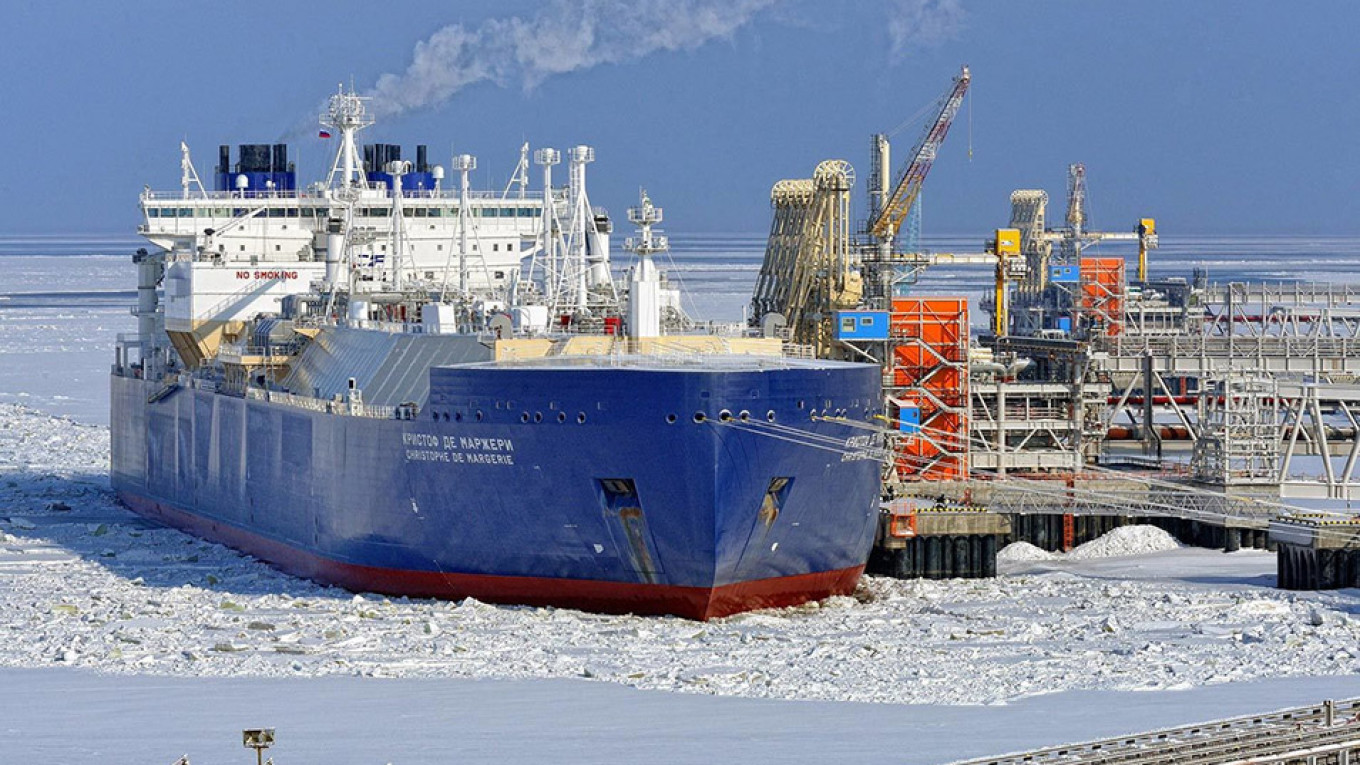
Expect a further industrialized Arctic
Elizabeth Buchanan, Lecturer of Strategic Studies with Deakin University at the Australian War College
2020 will welcome Russia’s updated Arctic Strategy (as the existing 2008 Arctic policy retires, right on schedule). Putin has already signaled the focus will be upon Russia’s industrialization of the Arctic up to 2035. This focus is in line with the fact that the Arctic is seen as the future resource base for the Russian government. Russia’s recent suite of resource project tax cuts further supports the priority of Arctic resource development for Moscow.
Will we finally see the "new" Cold War between Russia and the West in the Arctic next year? I don’t think so.
But 2020 will witness the rebirth of new strategic competition between Arctic stakeholders through a new age of Arctic industrialization. Commercial calculations will drive strategic partnerships in the Arctic — we have already seen this in the converging Sino-Russia relationship in the region.
A relationship originally born out of desperation thanks to Western energy sanctions, it now serves as the basis for necessary infrastructure projects and ultimately, the redesign of global transport corridors and energy flows — at the behest of Beijing and Moscow. In 2020, I expect Russia to also strengthen its insurance clause against becoming China's "little brother" by diversifying its commercial Arctic partnerships further (with Japan, Saudi Arabia and India in particular).
Of course, the securitization narrative of the Russian Arctic will continue — we know militarization garners more headlines. But this is the distraction. It is important to look beyond and focus on the long-game critical infrastructure investments which are been cultivated by the Kremlin. In positing the strategic trajectory of the Arctic, I believe it is crucial to watch Russia’s industrialization program for the region as it begins to take shape in 2020. The gravity of what (economically) is at stake for the Kremlin necessarily means that the current cooperative Arctic environment will be bolstered by Moscow.
I believe it will be, particularly in the lead up to Russia assuming the Arctic Council Chairmanship in 2021.
A Message from The Moscow Times:
Dear readers,
We are facing unprecedented challenges. Russia's Prosecutor General's Office has designated The Moscow Times as an "undesirable" organization, criminalizing our work and putting our staff at risk of prosecution. This follows our earlier unjust labeling as a "foreign agent."
These actions are direct attempts to silence independent journalism in Russia. The authorities claim our work "discredits the decisions of the Russian leadership." We see things differently: we strive to provide accurate, unbiased reporting on Russia.
We, the journalists of The Moscow Times, refuse to be silenced. But to continue our work, we need your help.
Your support, no matter how small, makes a world of difference. If you can, please support us monthly starting from just $2. It's quick to set up, and every contribution makes a significant impact.
By supporting The Moscow Times, you're defending open, independent journalism in the face of repression. Thank you for standing with us.
Remind me later.



